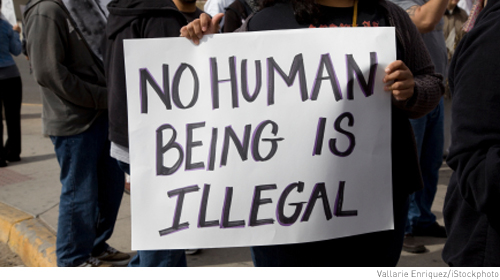The Administration Must Act: Immigrants in Detention Deserve Equal Protection from Sexual Abuse


In 2009, , a domestic violence survivor who is now a lawful U.S. resident, was held in immigration detention at the Cass County Jail in Plattsmouth, Neb. While Claudia waited there for the outcome of her immigration hearing, she faced months of brutality at the hands of a fellow detainee. Claudia was hit, kicked and choked daily. She was also sexually assaulted and left bleeding, with no one to turn to for help.
"None of the guards in the jail spoke Spanish and I didn't speak English," Claudia . "I had no one to turn to, no one to talk to. No one at the jail ever told us how to report problems. So I stayed silent…except I tried to ask for a doctor. I asked for a doctor over and over because the beatings had hurt me a lot. I told them I had headaches and a lot of pain in my stomach and womb. I hoped that if they let me see the doctor, I could privately tell someone what was happening, but they never let me have an appointment."
Claudia was finally relieved of this hell when she was transferred away from her attacker to another part of the jail, after four months of suffering. But even after reporting her abuse and begging for medical care, she still didn't receive a physical examination, STD testing, mental health care or counseling.
"They told me, 'Immigration doesn't pay for that. You're not on outside,'" Claudia said. "I got one thing from them: once, they offered me a Tylenol."
Claudia's story is not isolated. Those in immigration detention are particularly vulnerable to sexual abuse and assault due to language and cultural barriers, as well as fear of deportation. Plus, do not have legal representation.
Government documents obtained through an ACLU Freedom of Information Act request reveal nearly 200 allegations of sexual abuse and assault at immigration detention facilities since 2007. Many other incidents have undoubtedly gone unreported by detainees who fear speaking out or are unable to do so without the help of an attorney. , and major newspapers have all covered .
In 2003, Congress unanimously passed the Prison Rape Elimination Act after learning of horrific sexual abuses in prisons and detention facilities. PREA sets standards for preventing, detecting and responding to sexual abuse in custody and was intended to provide equal protection for every detainee or inmate.
In February 2011, the Department of Justice released proposed PREA regulations – National Standards to Prevent, Detect, and Respond to Prison Rape. These proposed standards, which determine how PREA is implemented, erroneously excluded protections for many immigration detention facilities.
Since then, the ACLU, along with immigration, labor, faith-based, women's rights, community and victim advocacy organizations has continuously pushed for the final DOJ regulations to include all immigration facilities. Yesterday, the ACLU and other groups joined in a letter to Cecilia Muñoz, Director of the President's Domestic Policy Council, to reiterate why all immigration detainees must be equally protected by PREA.
The letter points to many other like Claudia's, and explains how the Obama administration, by not extending coverage to immigration facilities, threatens the safety of hundreds of thousands of men, women and unaccompanied children in immigration custody.
The letter also makes it clear that Immigration and Customs Enforcement's (. ICE's do not provide the same protections as the DOJ PREA regulations.
Without coverage under DOJ's regulations, those in immigration detention will receive second-class protection from sexual abuse and assault. The law's republican and democratic authors have publicly and repeatedly made clear that PREA was intended to cover immigration detainees fully and equally. As the National Sheriffs' Association has advised Congress, "[Department of Homeland Security] PREA standards need to be consistent with DOJ PREA standards. This would ensure . . . the swift and successful implementation of final PREA standards."
The Obama administration should direct DOJ to publish a final rule that applies to all immigration detention facilities under the control of, or contracting with, DHS and the Department of Health and Human Services, which is responsible for the detention of 9,000 unaccompanied children a year. It's the only way to ensure what happened to Claudia and other survivors of sexual abuse and assault in immigration detention will never happen again.
Learn more about sexual abuse in immigration detention: Sign up for breaking news alerts, , and .
